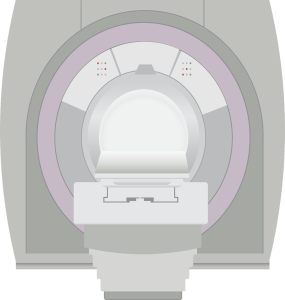Every second of your life depends on your brain scanning your surroundings for trouble. This unconscious process guides your behavior so as to avoid danger and maximize your chances of survival. You will become conscious of this ongoing interaction with the environment only when a given need is unmet. This is especially true for basic survival needs such as air, food, water, excretion, sleep, and not being in pain. You’ll initially become nervous and then anxious. If the solution is delayed, your body will kick in more adrenaline and cortisol and you’ll become angry. This chemical reaction and resultant behaviors increase your odds of survival. It is the most anxious groups of humans who have flourished. Anxiety, Anger and Adrenaline

Survival
Humans additionally have consciousness so just thoughts can produce the same neuro-chemical reaction. Secondary needs that become a problem include social interaction, self-esteem, companionship, validation, etc. It does not matter if the thoughts are based on reality. It was my friend, Dr. Fred Lusksin and author of Forgive for Good, (1)who pointed out that your body’s main focus, is to survive, not to have a good time. Therefore the default mode for your brain is negative. This characteristic causes many errors in thinking. As they are usually irrational, there is no solution and no end. The resultant relentless anxiety eventually becomes unbearable. It also worsens with age and repetition.
We assume that solving problems will diminish anxiety. It might be true for that specific situation. But what has become obvious to me is that my brain will quickly begin scanning everything around me for more danger. If there is nothing physical to be concerned about I will experience (create) endless irrational thoughts that are disruptive. In fact when things are quiet these thoughts often become even more intense.
What did I do Wrong?
One recurring example is when someone doesn’t return an email or phone call in a timely manner, I immediately assume that I said or did something that offended him or her. Or maybe he or she just doesn’t care for me anymore. My brain immediately begins spinning. Invariably, I find out that they were out of town or dealing with a difficult situation. The delay had nothing to do with me.
A few weeks ago I sent an email to a good friend of mine to have re-sent out to a group of colleagues. I became upset when it wasn’t posted. Instead of just re-sending the email or asking about what happened, I spent hours obsessing about what I could have done or said that upset him. It turns out that he hadn’t seen it. He happened to run across it while cleaning out his “in box” and really liked it. My hours spent being agitated were a complete waste of time.
There are endless problems created by your personal scanner, which is always on high alert.
The Problems
My patients often became so focused on the situation or person who wronged them that it consumed their life. One study showed holding on to anger around an injury significantly affected the level of pain and decreased emotional well-being. (2) I’ve had many intense conversations around this scenario. They’re convinced that when their lawsuit or claim is resolved they will be happier. That’s simply not true. First of all, most of the time these situations rarely resolve quickly. Your pain/ anger pathways are now deeply imbedded and solving the problem will not reverse those circuits. What if the problem is not solvable? Do you really want to remain miserable? Elephant’s noose

Second, your brain will immediately land on another problem. It always does. Just watch.
Third, one problem might get solved but is that your only one? Life constantly throws us unhittable curve balls. How many of your issues do you need to solve before you are content? What are the odds of every problem being solved to the point where you are now happy? It isn’t going to happen and if it could you would now worry when it was all going to fall apart. The Eye of the Storm
Fourth, if you cannot truly relax on a given day without worrying, when are you going to regenerate – especially if you are not sleeping well? It is critical to relax when you have the opportunity. When do you get to enjoy your life? Enjoy Your Day Today

Possible Solutions
Your personal brain scanner can’t be turned off. You’d die. So what’s the solution? I am not pretending to be an expert on this and these are just some of my observations of approaches that I have found helpful.
- I think the one most important strategy is awareness. I am noticing how consistently my brain lands on negatives in spite of so many things I have to be grateful for. It helps me see the insanity of it.
- I will never forget a simple comment made by the Dali Lama in his book, The Art of Happiness (3). He pointed out that we often compare ourselves to those who have more than us. Why not compare yourself to those who are less fortunate? I use this concept daily as I hear about the extreme suffering of so many people around the world. At the moment there are over 60 million refugees worldwide. I do not have much to complain about.
- Reading history almost always wakes me right up regarding what I have to be thankful for. One example was a book, The Swerve by Stephen Greenblatt (4). He defines a “swerve” as a world event that changes the course of human history. The story is about the discovery of an Ancient Greek manuscript that was a big factor in ending the Dark Ages. Amongst many insights in this book, he describes the life of the people who lived in the Dark Ages. My worst day ever is infinitely better than their best day. I can write this post without worrying about the Inquisition priest walking through my door and hauling me off to an unthinkable fate. The book made a deep impression on me.
- I re-committed to the expressive writing at a level that I haven’t done since I first began my journey out of The Abyss in 2002. It is still startling to me how effective this simple exercise is in disconnecting me from my racing thoughts and connecting me with my day. Write and Don’t Stop
- The tool that helps me during my day is the active meditation. Instead of battling my thoughts I simply place my mind on a sensation for 5-10 seconds and I calm down. Engaging with these negative circuits give them more power. Active Meditation
Your brain is a scanner that cannot be turned off. Don’t think that solving a given problem is going to decrease your anxiety for any length of time. Your mind is going to find another target quickly.
- Luskin, Fred. Forgive for Good. Harper Collins, New York, NY, 2002.
- Carson, JW, et al. Forgiveness and chronic low back pain: A preliminary study examining the relationship of forgiveness to pain, anger, and psychological distress. Jrn of Pain (2005); 6:84-91.
- Dali Lama, HH, and Howard Cutler. The Art of Happiness. Penguin Group, New York, NY, 1998.
- Greenblatt, Stephen. The Swerve. Norton and Co., New York, NY, 2011.
